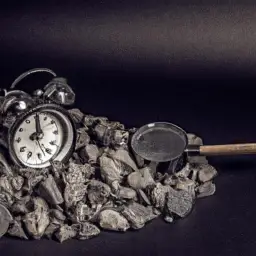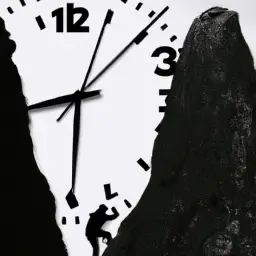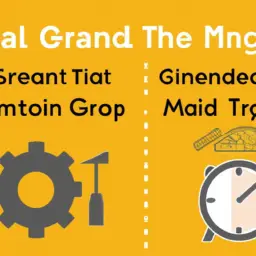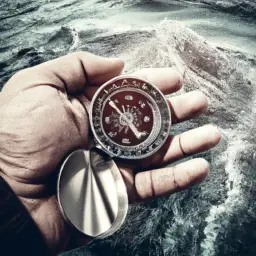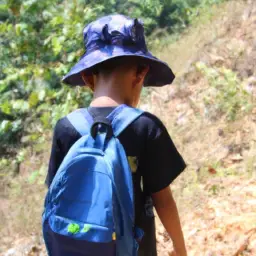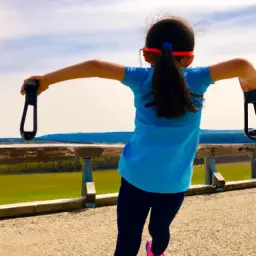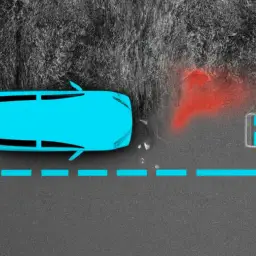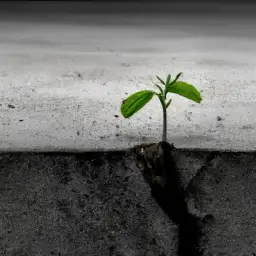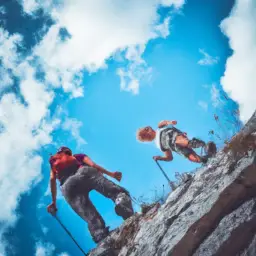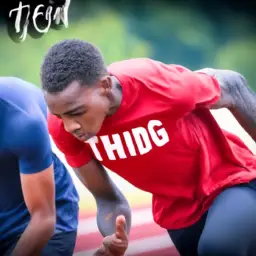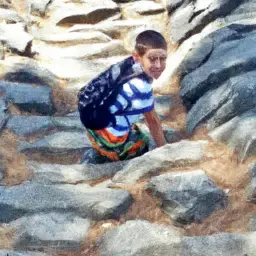Do you want to be a valuable asset to your team? Do you want to develop skills that can help you work collaboratively with others towards a common goal? Then you need to focus on two key aspects: grit and social skills.
These two qualities are essential for effective teamwork and collaboration, and can help you make significant contributions to any project.
Grit is the ability to persevere and stay committed to a task, even in the face of challenges and setbacks. It involves having a growth mindset and being willing to put in the effort required to achieve your goals.
Social skills, on the other hand, involve being able to communicate effectively with others, build relationships, and work well in a team. These skills are essential for collaboration, as they help team members understand each other’s perspectives, resolve conflicts, and build trust.
By developing both grit and social skills, you can become a valuable asset to any team, and ensure that you make a positive impact on any project you work on.
Key Takeaways
- Grit and social skills are essential for effective teamwork and collaboration.
- Developing both grit and social skills can make one a valuable asset to any team.
- Effective teamwork strategies include identifying challenges, establishing clear goals, and being open to feedback and collaboration opportunities.
- Conflict resolution and flexibility require communication, active listening, and finding solutions that benefit the entire team.
Understanding Grit and Its Role in Teamwork
Grit’s a biggie in teamwork, so let’s dig in and figure out how it can help us work better together.
First, it’s important to understand what grit is. In short, it’s the ability to persevere through challenges and setbacks. It’s about having the resilience to keep going even when things get tough.
When it comes to teamwork, having grit means being able to stick with a project or task even when it feels overwhelming or frustrating. It means not giving up at the first sign of difficulty, but instead pushing through and finding a way to make it work.
Developing resilience and cultivating perseverance are key components of grit. They allow us to keep going even when the going gets tough.
When we’re working in a team, it’s important to recognize that challenges and setbacks are inevitable. However, with grit, we can face these challenges head on and work together to find solutions.
By fostering a culture of grit within a team, we can create an environment where everyone feels supported and encouraged to keep going, even when things get tough. Ultimately, having grit in a team setting is essential for achieving success and reaching our goals.
Developing Social Skills for Effective Collaboration
To work effectively with others, you’ll need to hone your ability to communicate clearly, listen actively, and build relationships that foster trust and collaboration. Here are some tips to help you develop your social skills and become a better collaborator:
-
Practice active listening: When someone is speaking, focus on what they’re saying instead of thinking about what you’re going to say next. Ask clarifying questions and summarize what they’ve said to show that you understand and value their input.
-
Show empathy: Try to see things from other people’s perspectives and be sensitive to their feelings. This can help you build stronger relationships and resolve conflicts more effectively.
-
Network: Build relationships with people in your industry or field, and seek out opportunities to collaborate with them. This can help you learn from others and expand your knowledge and skills.
-
Communicate clearly: Use clear and concise language to convey your ideas and make sure everyone is on the same page. Don’t be afraid to ask questions or ask for clarification if you’re unsure about something.
By developing your social skills, you’ll be better equipped to work effectively with others and achieve your goals as a team. Remember to practice active listening, show empathy, network, and communicate clearly to become a more effective collaborator.
The Benefits of Grit and Social Skills in Teamwork
Combining determination and good communication can lead to powerful outcomes when working in a team. This is where gritty communication and social perseverance come into play.
Gritty communication means being honest and straightforward with your team members, even when things get tough. It means having the courage to speak up and share your ideas, even if they go against the norm. When you practice gritty communication, you build trust and respect with your team, and you create an environment where everyone feels comfortable sharing their thoughts and opinions.
On the other hand, social perseverance is all about being patient and persistent when it comes to building relationships with your team members. It means taking the time to get to know each person individually, understanding their strengths and weaknesses, and finding ways to work together that complement each other’s skills. When you practice social perseverance, you create a sense of camaraderie and collaboration within your team, and you increase your chances of achieving success together.
By combining these two skills, you can create a powerful force that drives your team towards achieving their goals and making an impact in your industry.
Building Grit and Social Skills Through Practice
If you want to build grit and social skills through practice, you need to start by identifying and overcoming challenges. This means recognizing obstacles that are standing in your way and pushing yourself to find solutions.
Another important step is seeking opportunities to collaborate with others, which can help you develop better communication and teamwork skills.
Finally, don’t forget the importance of giving and receiving feedback as you work towards improving your abilities. By seeking out constructive criticism and using it to make positive changes, you can continue growing and developing as a valuable member of any team.
Identifying and Overcoming Challenges
You’ve probably faced challenges when working with others, but it’s important to identify them and find ways to overcome them. When it comes to teamwork and collaboration, there are various obstacles that can arise, such as miscommunication, differing opinions, and conflicting schedules. However, with the right strategies and mindset, you can effectively overcome these challenges and achieve success in your projects.
Here are some tips for identifying and overcoming challenges in teamwork and collaboration:
-
Practice effective problem solving by communicating clearly and creatively brainstorming solutions.
-
Recognize and respect each team member’s unique strengths and weaknesses.
-
Cultivate a positive and supportive team culture, where everyone feels valued and heard.
-
Establish clear goals and deadlines to keep everyone focused and accountable.
-
Be open to feedback and willing to make adjustments to improve the team’s performance.
By implementing these strategies and maintaining a growth mindset, you can build your grit and social skills, and become a valuable asset to any team. Remember that challenges are simply opportunities for growth and learning, so embrace them with enthusiasm and determination.
Seeking Opportunities to Collaborate
Now that you have identified and overcome the challenges that come with teamwork and collaboration, it’s time to seek out opportunities to collaborate. This means actively looking for ways to work with others and brainstorming tactics to bring your skills and ideas to the table. It also means utilizing networking strategies to connect with like-minded individuals and potential collaborators.
To make the most of these opportunities, it’s important to approach them with an open mind and a willingness to learn from others. This means being receptive to feedback, embracing different perspectives, and being flexible in your approach. A great way to start is by reaching out to colleagues or peers in your field and exploring ways to work together. You can also attend conferences or events to meet new people and learn about new projects or initiatives. By actively seeking out collaboration opportunities, you can build your network, expand your skills, and make a positive impact in your field.
| Brainstorming Tactics | Networking Strategies |
|---|---|
| Encourage everyone to share ideas without fear of judgement | Attend industry events and conferences |
| Use mind-mapping and other visualization techniques | Join online communities or social media groups |
| Assign roles and responsibilities to team members | Set up informational interviews with professionals in your field |
By incorporating these tactics and strategies, you can enhance your collaboration skills and increase your chances of success. Remember, collaboration is a two-way street, so be sure to contribute your own unique skills and ideas while also being receptive to the input of others. With the right mindset and approach, you can turn any collaboration opportunity into a valuable learning experience and a chance to achieve great things together.
Giving and Receiving Feedback
To truly excel in your work, it’s crucial to be able to give and receive feedback in a constructive manner. Giving constructive feedback is a skill that requires practice and patience. It’s important to focus on the behavior or action that needs improvement rather than attacking the person.
Here are three tips to help you give constructive feedback:
- Be specific – provide examples of what the person did well and what needs improvement.
- Be empathetic – put yourself in their shoes and try to understand their perspective.
- Be solution-oriented – offer suggestions on how they can improve and work together to find a solution.
Receiving criticism can be difficult, but it’s important to remember that it’s not a personal attack. It’s an opportunity for growth and improvement.
Here are three tips to help you receive criticism:
- Listen actively – pay attention to what the person is saying and ask questions to clarify.
- Be open-minded – try to see the feedback as an opportunity for growth rather than a personal attack.
- Take action – use the feedback to improve and make changes to your behavior or actions.
Overcoming Obstacles in Teamwork
When working in a team, you’ll inevitably encounter conflict and disagreements. It’s important to know how to handle these situations and come to a resolution that works for everyone involved.
You may also need to manage different work styles and personalities, which can be challenging but ultimately beneficial for the team.
Additionally, being able to adapt to change is crucial in any collaborative effort, as unexpected obstacles can arise at any time.
Dealing with Conflict and Disagreements
If you’re struggling to navigate conflict and disagreements within a team, it’s important to remember that communication and active listening are key components to finding a solution.
In order to effectively resolve conflict, you should first take a step back and assess the situation. Try to identify the root cause of the conflict and understand each person’s perspective. This will help you to approach the situation with empathy and a willingness to compromise.
To effectively communicate and resolve conflict, here are a few strategies that you can use:
-
Practice active listening: This means paying attention to what the other person is saying and trying to understand their point of view.
-
Use contractions in ‘I’ statements: Instead of blaming others, focus on expressing how you feel and what you need.
-
Stay calm: It’s important to remain calm and avoid getting defensive, as this can escalate the situation.
-
Find a compromise: Work together to find a solution that everyone can agree on. This may require some give and take from both sides, but it’s important to find a solution that benefits the entire team.
By utilizing these communication strategies and taking a collaborative approach to conflict resolution, you can help to create a positive and productive team environment.
Managing Different Work Styles and Personalities
Managing different work styles and personalities can be challenging, but it’s important to remember that diversity can bring valuable perspectives and ideas to the table.
Personality clashes and communication breakdowns are common occurrences when working with people of different backgrounds and experiences. However, it’s essential to find a way to balance individuality and teamwork to ensure that everyone’s strengths are utilized.
To manage different work styles and personalities effectively, it’s crucial to establish clear communication channels and expectations from the beginning. Encourage team members to express their thoughts and ideas openly while also valuing the input of others.
It’s also helpful to identify each team member’s strengths and weaknesses and delegate tasks accordingly to ensure that everyone’s skills are utilized. By embracing diversity, you can create a stronger and more effective team that is better equipped to handle any challenges that may come its way.
Adapting to Change
Adapting to change can be difficult, but it’s crucial to be flexible and open-minded in order to successfully navigate new situations and challenges. In teamwork and collaboration, this means embracing uncertainty and being willing to shift gears when necessary. It’s important to remember that change is inevitable and that being able to adapt can lead to growth and success.
Flexibility in teamwork means being able to adjust to different circumstances and work styles. This can mean being open to new ideas and approaches, as well as being able to compromise when necessary. A helpful way to approach this is by focusing on the end goal and working together to find the best way to achieve it. In the table below, you can see some examples of how flexibility can be applied in different situations. By being adaptable and open-minded, you can strengthen your teamwork skills and improve your ability to collaborate effectively.
| Situation | Flexible Approach |
|---|---|
| Team member has to leave early | Dividing tasks and adjusting deadlines |
| Unexpected obstacle arises | Brainstorming solutions and adjusting plans |
| New team member joins | Welcoming and integrating them into the team |
Remember, being open to change and embracing uncertainty can lead to growth and success in teamwork and collaboration. By being flexible and adaptable, you can improve your ability to work effectively with others and achieve your goals together.
Frequently Asked Questions
What is the definition of grit and how does it differ from perseverance or determination?
When it comes to grit vs determination, it’s important to note that while they may seem similar, they’re actually quite different.
Grit is a combination of passion and perseverance towards a long-term goal, while determination is more about pushing through obstacles in the moment.
Grit requires a level of commitment and resilience that goes beyond just being determined to see something through.
And when it comes to teamwork, grit is crucial. It allows individuals to work through challenges and setbacks, and to stay focused on the end goal.
In order to be successful as a team, each member must possess grit and be willing to work towards the collective goal, even in the face of adversity.
So, while determination is important, it’s grit that truly sets individuals and teams apart.
Can individuals with lower levels of grit still effectively contribute to teamwork and collaboration?
Even if you don’t possess high levels of grit, you can still be an effective contributor to teamwork and collaboration. The importance of diversity in a team cannot be overstated; everyone brings different strengths and perspectives to the table.
A diverse team can also help mitigate weaknesses and push boundaries. Additionally, the role of leadership is crucial in fostering a collaborative culture where everyone feels valued and heard. Effective leaders can set clear goals and expectations, provide constructive feedback, and create a safe space for everyone to share their ideas.
So, while grit and social skills are important factors in teamwork, they’re not the only ones. Don’t underestimate the power of diversity and leadership in achieving successful collaboration.
How can individuals identify and improve upon their own social skills in a professional setting?
To identify and improve your social skills in a professional setting, it’s important to focus on effective communication and emotional intelligence.
Start by actively listening to your colleagues and taking the time to understand their perspectives. This will help you build stronger relationships and work more collaboratively.
Additionally, pay attention to your own body language and tone of voice, as these nonverbal cues can also impact how others perceive you.
Finally, work on developing your emotional intelligence by recognizing and managing your own emotions, as well as being aware of and empathetic towards the emotions of others.
By consistently practicing these skills, you can become a more effective and valuable member of any team.
Are there any industries or job positions that specifically require high levels of grit and social skills for successful collaboration?
If you’re looking for industries that require high levels of grit and social skills for successful collaboration, you might want to consider fields such as sales and marketing, project management, and healthcare.
These industries often require individuals to work closely with others, navigate complex situations, and adapt to changing circumstances. The benefits of having grit and strong social skills in collaboration are numerous, including better communication, increased trust and respect among team members, and the ability to persevere through challenges.
Being able to identify and improve upon these skills can set you apart as a valuable team member in these industries.
How can team members address conflicts or disagreements within the group to maintain productive collaboration?
When conflicts or disagreements arise within a team, effective conflict resolution and communication strategies are essential for maintaining productive collaboration. It’s important to approach the situation with an open mind and a willingness to listen to all perspectives.
You can start by acknowledging everyone’s feelings and concerns, and then work together to find a solution that satisfies everyone’s needs. Active listening, clear communication, and a focus on finding common ground are key to resolving conflicts and keeping the team working together towards a common goal.
Remember that disagreements are normal and can even lead to better outcomes, as long as they’re approached with a collaborative and respectful attitude.
Conclusion
Congratulations, you’ve learned about the importance of grit and social skills in teamwork and collaboration!
Grit is essential for reaching goals, persisting through challenges, and bouncing back from setbacks. When combined with strong social skills, teamwork becomes even more effective.
Social skills allow team members to communicate effectively, resolve conflicts, and build positive relationships.
By developing both grit and social skills, you can become a valuable team member who contributes to the success of the team. Remember that these skills can be learned and improved with practice.
Don’t be afraid to take on challenges and work on building your resilience. Keep an open mind and work on your communication and interpersonal skills to become a stronger collaborator.
With these skills, you’ll be able to overcome obstacles and achieve great things with your team.
















